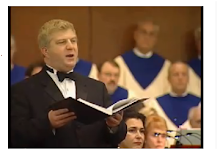- I thought that it would be helpful if I went to Engineering school. (I went to Georgia Tech for a year, but never got far enough along to make the German pay off)
- Because everyone else was taking Spanish and I wanted to be different.
All of this being said, I did kind of skate by with my German classes in both high school and college. I have never been great at language per se. I have enough problems with English grammar and spelling. It is no shock that my SAT math scores were 150 points higher than my English scores. Like many young men, I was drawn to science and math, and so I read less, and I wrote even less than that. So, when it comes to German grammar, (which has its own very different structure) I need a very heavy dose of "crash course."
On an artist's budget (or non-budget) I cannot really afford Rosetta Stone to help me beef up my language skills. On my trip to northern Italy this past summer, I had some private German lessons. (mostly because I was further advanced than most of my colleagues, who speak Italian, but not German) I can honestly say that I didn't learn much actual language, but I did learn what I needed to learn before I moved to Germany. I need to focus my learning (or relearning) of German to two key areas:
- Vocabulary, vocabulary, and more vocabulary. It does me no good to only really know 5 verbs and only basic German when you are trying to build relationships with conductors, agents, and other colleagues.
- Grammar, grammar, and grammar. The expanded vocabulary does me no good if I use it like a three year-old, just pointing at things and saying what they are. For example, I see a lemon; I point at it and say "die Zitrone."
So, what cool words did I learn yesterday? I learned:
- der Frosch = the frog
- die Ente = the duck
- das Nilpferd, das Flußpferd = the hippo











... Probably because noone wants to get close enough to a hippo to find out.
ReplyDelete@Krista....you are probably correct there!
ReplyDelete